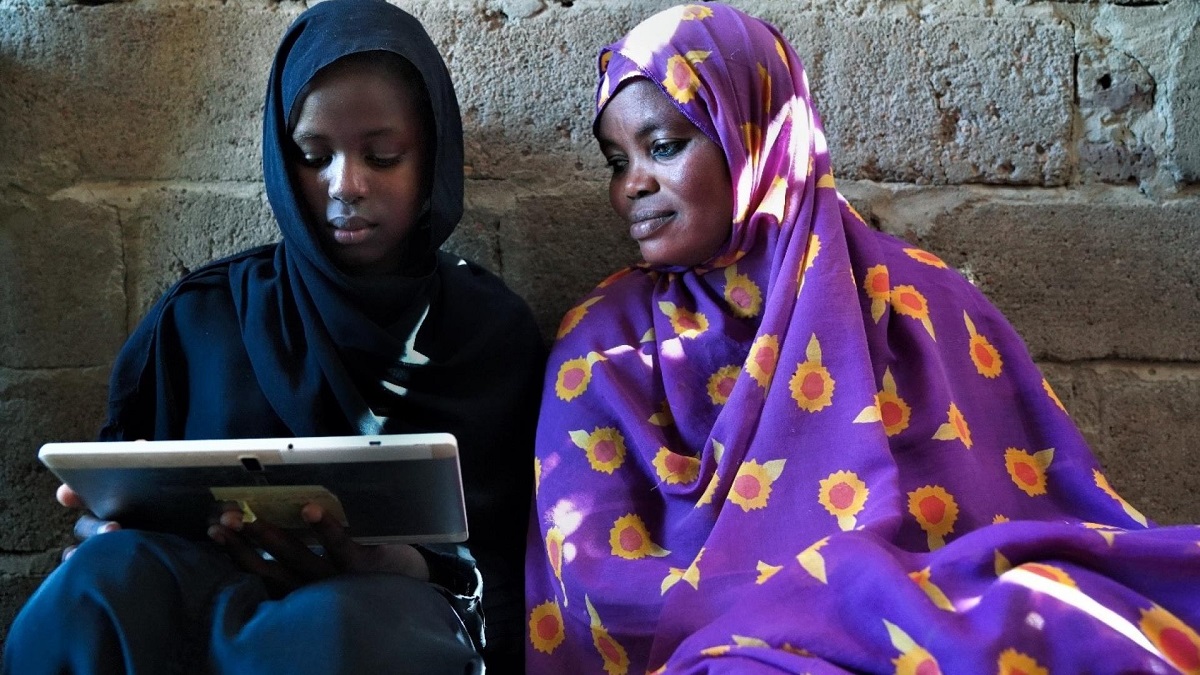UNCTAD steps up advocacy for global support to help vulnerable economies leverage digital trade for inclusive and sustainable development.

© UNICEF/Bos | E-learning services protect the right to education when students were affected by recurring floods in Sudan.
While digital delivery has the potential to empower skilled providers anywhere in the world to engage in trade, its benefits are not automatic.
Digitally deliverable services are those that can be delivered remotely over computer networks. However, many of these services are still sometimes delivered “non-digitally”.
Many developing countries lack adequate infrastructure and financial resources to tap the potential of digitally delivered trade.
And only a few countries directly measure the size and composition of trade in digitally delivered services, which were actually delivered remotely over computer networks. These include telecommunications and computer services, financial, insurance, pension and various business services.
To help plug this data gap, a new handbook by UNCTAD, the World Trade Organization, the International Monetary Fund and the Organisation for Economic Co-operation and Development sets out a common framework and practical guidance to help countries measure digital trade.
Coordinated capacity-building is under way to support countries in this area.
Digitally deliverable services growth continues, but at a slower pace
Meanwhile, new UNCTAD estimates show that worldwide, exports of digitally deliverable services increased by 3% in 2022, reaching $3.94 trillion.
This represents a moderation compared to the 16% increase in 2021 amid the COVID-19 pandemic.
With resurgent trade in non-digitally deliverable services exceeding pre-pandemic levels in 2022, the share of digitally deliverable services in total services exports declined to 55%, compared with highs of 63% in 2020 and 61% in 2021.
But that’s still 3-4 percentage points above the pre-pandemic rate, suggesting that increased trade in digitally deliverable services may be sustained going forward.
Uneven progress across developing world
While developed countries still dominate trade in digitally deliverable services, the share of developing countries increased from 19% in 2010 to 24% in 2022, with China accounting for a notable portion.
With the highest annual average growth rate of the groups shown at 12%, small island developing states – a group of 39 nations facing unique social, economic and environmental vulnerabilities – increased their share of global exports of digitally deliverable services by two percentage points. At 5%, their share of global exports of digitally deliverable services is broadly in line with their share of overall services exports.
By contrast, the shares of least developed countries (LDCs) and landlocked developing countries (LLDCs) of digitally deliverable services trade are much lower than for services in general.
In 2022, LLDCs accounted for 0.75% of global services trade but only 0.3% of digitally deliverable services exports. For LDCs these shares were 0.6% and 0.2% respectively.
Vulnerable economies need help to harness digital trade
LDCs’ share of global exports of digitally deliverable services has declined since 2010, along with their share of total services trade. As customers increasingly expect digital delivery of these services, LDCs need to strengthen their ability to address key challenges.
ITU statistics show that although 92% of the people in LDCs are covered by mobile networks, less than half have access to faster 4G networks that can support digital trade. Only 36% of the people in LDCs use the internet, partly due to high connectivity costs.
UNCTAD’s eTrade readiness assessments show that many countries, including LDCs, are constrained by policymakers’ capacity to formulate and implement digital policies – in part due to the limited availability of data and analysis in this area, as well as insufficient international cooperation and support.
Other challenges include the lack of comprehensive institutional capacity-building and effective inter-ministerial coordination, inadequate public-private policy dialogue, limited financing for e-commerce and digital businesses and various digital skills gaps.
UNCTAD leads the charge for inclusive e-trade
The UNCTAD-led eTrade for all initiative offers a valuable platform for delivering more effective assistance to countries, now involving 35 partnering organizations including the World Trade Organization and the World Bank.
A subset of this initiative, eTrade for Women, helps reduce the gender gap in e-commerce and digital trade, having supported some 300 women entrepreneurs in developing countries.
UNCTAD also underscores the need for a level playing field in the digital economy, calling attention to key areas of data, trade, taxation, competition and consumer protection at the global level.
During the forthcoming UNCTAD eWeek 2023, set for 4 to 8 December, thousands of policymakers, business leaders, entrepreneurs and innovators will deliberate on ways to shape the future of the digital economy for the benefit of all. Register to attend.



